The organisation acts as an anchor institution within its community and works to improve health and reduce health inequalities in the local population.
Case studies
Supporting employment and skills development for the local community
Community Works for Health is an integral part of the public health vision for Barts Health NHS Foundation Trust. It recognises that employment in high quality jobs and opportunities for skills development are fundamental determinants of population health. This is particularly important in east London, which has historically been affected by deprivation, social exclusion and lower than average levels of employment and skills. Since 2012/13 the programme has supported over 700 residents into work with the trust through a programme of training, assessment and work placements. It has recruited to over 500 apprenticeships for new and existing staff, and set up and sustained a network of community and statutory partners providing a pre-employment pathway into opportunities at the trust. The team has also facilitated the development of supported employment schemes for people with learning difficulties, autism and a broader range of disabilities.
Collaborative work to improve air quality
The Barts Health Cleaner Air for East London programme has been recognised by the Royal College of Physicians and the Royal College of Paediatrics and Child Health as an important example of best practice and cross-sector collaboration. Its aim was to improve the health of those who live and work in east London through reducing direct emissions, and reducing exposure to emissions among those most at risk. The collaborative programme delivers measurable, long-term reductions in health inequalities and showcases the role healthcare providers can play in driving improvements in public health. It was built around a series of practical projects which sought to engage and empower a wide range of individuals, from those delivering front-line care in hospitals and in the community, to those who were most affected and at risk from exposure.
Five hospitals and four GP surgeries participated in the programme, which engaged over 300 volunteers, trained over 300 Barts health professionals and 95 pharmacists. The programme reached 100,000 people in east London and 6,000 cleaner air packs were distributed.
Using data to improve the equity of care
Equity is an essential dimension of both inclusion and quality care, and one of Barts Health’s core values. For nearly two years, the trust has been using routinely collected patient data to review aspects such as process, access, outcomes and experience to identify opportunities to improve equity. The trust has examined data on incidents and complaints, missed appointments, readmission to hospital, cardiology, oncology and maternity services. It is positive that in many of the trust’s analyses thus far, there were no disparities for patients from protected groups, or for patients who live in areas of high deprivation. However there were significant differences in areas such as older patients being more likely to spend longer in accident and emergency, deprived patients being less likely to attend their appointments, and a range of access issues in sexual health. The trust is now developing plans to address these and will carry out an impact assessment of the work.
